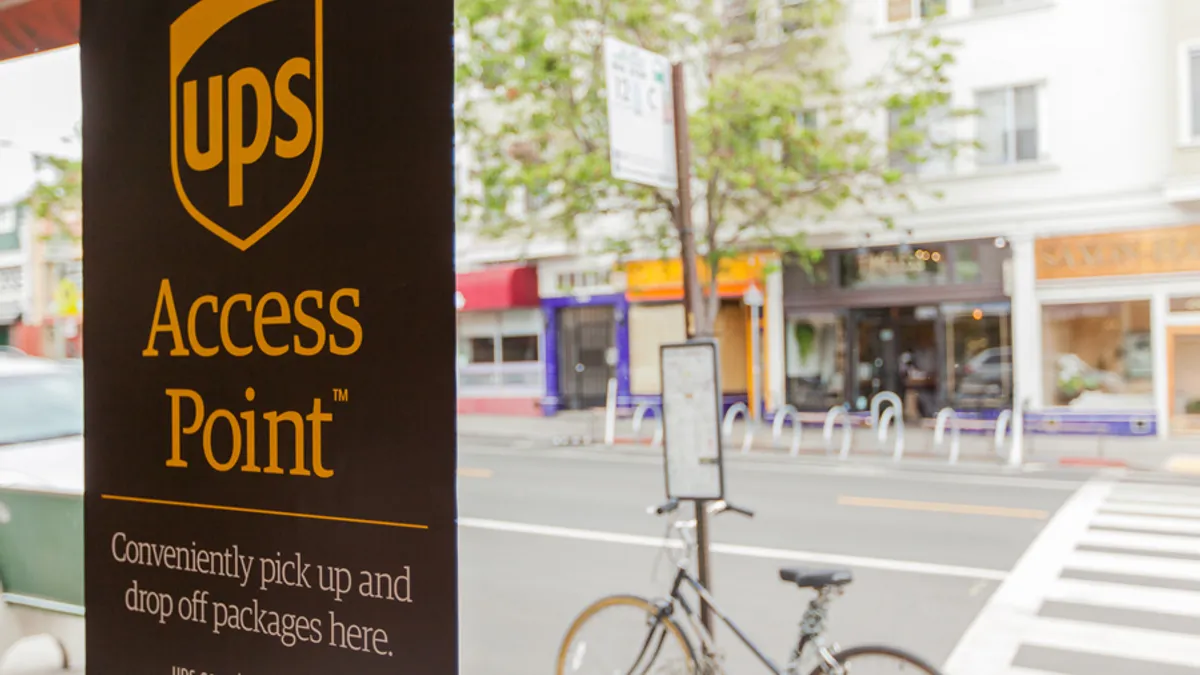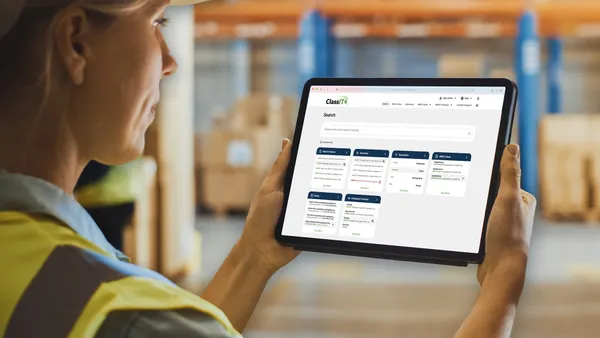Dive Brief:
- As part of their growth strategy, UPS will focus on advanced technology and high-margin customer bases including healthcare and life sciences, executives announced at an investor conference.
- Back in February, the company announced plans to invest $12 billion to expand its logistics network and an additional $7 billion in new aircraft, ground vehicles and technology improvements, with a major focus on automation.
- Chairman and CEO David Abney said at the conference 100% of eligible U.S. parcels will be sorted in what the company calls "more-automated" facilities, opening seven new "super hubs" by 2022. Half of parcels are sorted this way today.
Dive Brief:
UPS has made it clear it intends to be an early adopter of new technology in order to stay ahead of the competition. Indeed, the carrier's capacity to handle higher volumes has grown and with more growth to come, according to Abney.
UPS recently said in a statement the company will add 350,000-400,000 pieces per hour of sorting capacity in the U.S. each year from 2018 to 2020 — a result of their investments in automation. The company was one of the first 3PLs to experiment with blockchain technology while also working on incorporating drones and advanced chips to provide a new level of package tracking.
Financial analysts are concerned all of this capacity is going to service the large volume of low-margin packages that UPS handles from large companies like Amazon, and that the bottom line won't benefit enough from UPS' efforts, the Wall Street Journal and Bloomberg reported.
The company's answer to this dilemma is a growing focus on healthcare and life sciences shippers, whose shipments are time-sensitive and therefore cost more, along with small businesses that don't have the negotiating power to lower their rates with the carriers as large retailers do — all of this to bring in more revenue per package than consumer deliveries, which have come to dominate the carrier's business.














